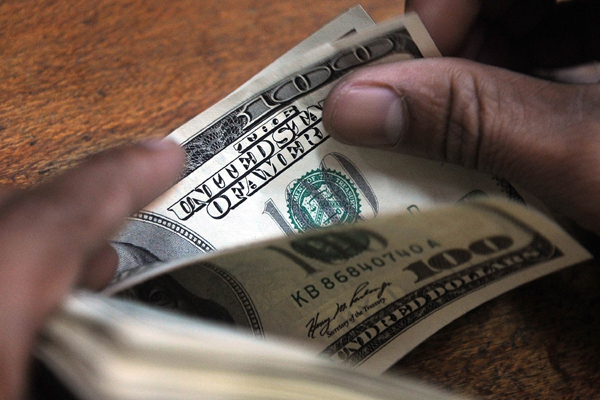Tuesday, 10 November 2015 15:19
 TOKYO: The dollar edged down against most emerging market units Tuesday after the previous day’s surge but ticked up against its major peers, maintaining its strength on growing expectations of a US interest rate hike this year.
TOKYO: The dollar edged down against most emerging market units Tuesday after the previous day’s surge but ticked up against its major peers, maintaining its strength on growing expectations of a US interest rate hike this year.
The greenback has seen demand surge after Friday’s US jobs report that indicated the world’s number one economy continues to improve despite weakness elsewhere, particularly China.
High-yielding, riskier, currencies were hammered Monday as investors shifted their focus back to the dollar in the wake of the jobs data, which ramped up expectations the Federal Reserve will begin tightening monetary policy next month.
Higher-yielding, or riskier, emerging units have been hit hard this year on fears of a flight of capital to the United States as dealers look for better, safer investments on the back of the looming US rate lift-off.
However, they saw some respite Tuesday and recovered somewhat, led by Malaysian ringgit, South Korean won, Indonesian rupiah heading higher. There were also gains for Thailand’s baht and Indian rupee.
“The (US) job figures were really striking, which made the market think that the Fed is going ahead with a rate hike,” said Yosuke Hosokawa, head of the FX sales team at Sumitomo Mitsui Trust Bank.
“But we still have a month to go before a December meeting,” Hosokawa told AFP.
“It’s not going to be a one-way rise in the dollar,” he said. “The current dollar-buying sentiment will remain unchanged, but its speed needs to be adjusted.”
The greenback edged up against the yen and euro Tuesday after spending the morning in the red. It changed hands at 123.27 yen in Tokyo, compared with 123.19 yen Monday in New York.
The euro fetched $ 1.0745 against $ 1.0748. It was also at 132.48 yen from 132.40 yen.
The greenback has been benefiting from the diverging policies of central banks as the Fed anticipates raising its benchmark federal funds rate from near zero, where it has been parked since December 2008.
Other central banks, including the European Central Bank and the Bank of Japan, are on an aggressive course of monetary easing to boost faltering economic growth.





























